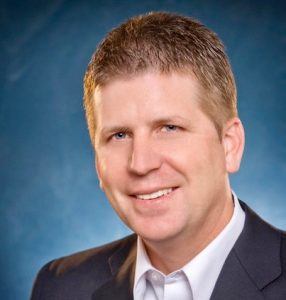Retired Walmart exec talks business leadership, lessons learned from watching Sam
by March 10, 2018 9:14 pm 7,529 views

Henry Jordan, who retired from Walmart after 28 years, said during his tenure he witnessed different leadership styles but none more effective than the servant leadership of Walmart founder Sam Walton.
“I was a young man, recently married moved to Panama City Beach in 1984 where I took a job with Walmart in 1985. There I fell in love with retail and moved from part-time to full-time. I was one of three assistant managers there and we had heard rumblings that Sam would be visiting the area soon. Our store manager was off that day and I remember seeing Sam Walton walking across the parking lot carrying a yellow tablet,” Jordan told a large group attending the Thursday (March 8) Cross Church Summit luncheon in Rogers.
He said Walton took the three young assistant managers to the snack bar area and sat them down. What he remembers most is Walton’s eagerness to get to know each one of them on a personal level. Jordan said Walton visited with them for several minutes giving them his undivided attention, knowing he had probably forgotten more about retail than this trio knew collectively on the subject.
Jordan said Walton’s servant leadership is what he modeled for his leadership style. Jordan was responsible for managing large teams of people as he rose through the ranks to store manager, district manager and director of Neighborhood Markets in charge of launching the first full grocery format. He became regional vice president for Walmart stores in the Carolinas and in 2005 he oversaw operations in California. He retired from Walmart in 2013, saying he and his wife Caroline had moved 15 times during his tenure before they settled down to a quieter life in Panama City Beach, Fla.
“The reason Sam drove that old truck and wore the ball cap was so he could be more approachable to his people. This is one of the ways he fostered trust. Then he took time to get to know the people on his team. He would take a knee in the stores and listen to what people had to say. He asked the team for answers because he believed in them,” Jordan said.

He said a servant leader can often get more out of a team than the members ever thought possible. Jordan said not everyone can be a servant leader but some of the great leaders have adopted the practice.
From Abraham Lincoln’s notion that there’s nothing stronger than gentleness to Herb Brooks, who coached the U.S. Men’s Hockey team to Olympic gold in 1980, Jordan said Brooks wouldn’t take the job unless he could pick the team himself and bypass the bureaucracy in the selection process. Jordan said Brooks took a group of amateur players and created a vision, trusting and believing his team to pull off one of the biggest upsets in Olympic history.
Jordan said Brooks knew the difference between being good and being great and that can make all the difference in outcomes. He laid out a leadership strategy that is part of his book – “Leading Through Relationship First: Building a Great Team Through a Commitment to Servant Leadership” – saying building strong relationships with the team is the foundation of success for the long term.
“I can’t stress enough how important it is for leaders to know their team, to have a relationship with each member and to let them know when they exceed expectations, just like when they don’t. It’s not enough to just know the team. A good leader also should make sure goals are aligned and everyone is moving in the same direction.
He recalled a former employee he inherited while working at Walmart. Jordan said the person on the team worked hard but wasn’t having success. He said the company was growing rapidly and this fellow couldn’t keep up.
“We got him more training and there was little improvement. Many would have given up on him and do what we used to refer to as promote him to a full-time customer position. But one day, he was on camera for something and I happened to notice what a good job he did. I sat him down and asked him if he had ever considered a position in corporate affairs. He told me he really liked being in front of the camera and so we were able to get him transferred out to a job more suited to his talents,” Jordan said. “The last time I checked on him he was still there building his career in corporate affairs.”
Jordan said a good leader should be able to sense when a person doesn’t like the job they are doing. He said there can be collateral damage to the company when workers are unhappy with their jobs and good managers can sometimes mitigate that by making adjustments. He said it goes back to knowing the team and having a relationship foundation.
He said after the team is assembled, aligned and adjustments are made, the last step of fine-tuning can mean the difference from being good to being great. The big difference between the two is the level of commitment and passion of the team and its leadership.
“People with a purpose do a better job,” he said. “Commitment is much more powerful than compliance which creates the law of how we operate, but it’s commitment that elevates the level of success from good to great.”
